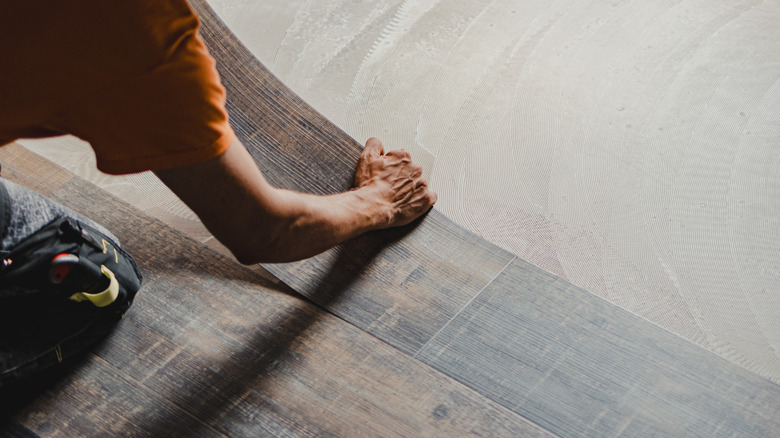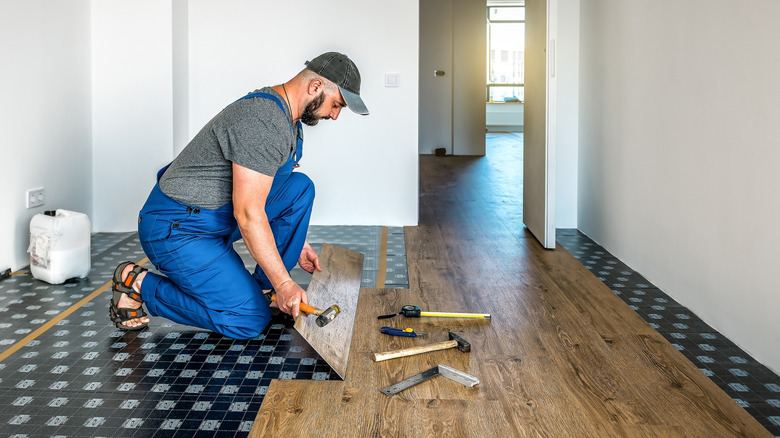Does Your Vinyl Floor Really Need A Moisture Barrier?
Vinyl flooring has come a long way in recent years. It can mimic hardwood, stone, or tile, and comes in large sheets or easy-to-install vinyl planks. It's durable, easy to care for, and water-resistant, making it an excellent pick when it's time to replace flooring in your home. Because of its versatility and durability, it's ideal for bathrooms, kitchens, and basements, but can be used anywhere in the house. However, what you might not know is that despite being water-resistant, your vinyl floor could require a moisture barrier.
In high humidity spaces or rooms with a concrete subfloor (like the basement), installing a moisture barrier (also known as a vapor barrier) is especially important, even if you're using a vinyl plank flooring product with an attached underlayment or pad. A barrier prevents ground moisture from seeping up through the vinyl, which can cause the floor to buckle, warp, or develop mold. While basements and concrete floors almost always require a moisture barrier, wood subfloors are a different story.
Here's when you might not need to install a moisture barrier (and how to know for sure)
It is unnecessary, and possibly even damaging, to install a plastic sheeting moisture barrier over a wood subfloor. These barriers prevent moisture from diffusing up through the floors. Since wood is porous, any trapped moisture under the barrier will enhance the risk of rot, mold, or mildew. Instead, for vinyl flooring that doesn't have an attached cork or foam pad, installing an underlayment under your vinyl floor is the better option. (If your vinyl flooring does have an attached pad or underlayment, installing a separate underlayment is likely unnecessary.) Unlike moisture barriers whose sole job is to block moisture, underlayments provide cushioning, sound dampening, and some level of moisture protection.
To determine when you should and shouldn't install a plastic moisture barrier, it's crucial to consult the manufacturer's instructions. Instructions may vary by manufacturer, and faulty vinyl flooring installation can void your warranty, preventing you from recouping your costs in the case of future flooring defects.

